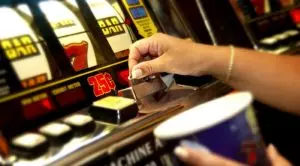 Gambling reform supporters have once again called for an acceleration of planned cashless trials after information emerged that the residents of New South Wales lost over AU$2.2 billion to clubs’ and pubs’ poker machines over the first four months of 2021.
Gambling reform supporters have once again called for an acceleration of planned cashless trials after information emerged that the residents of New South Wales lost over AU$2.2 billion to clubs’ and pubs’ poker machines over the first four months of 2021.
As announced, almost AU$600 million was lost to so-called pokies in April alone, with the figure representing a 12.58% increase from the one in April 2019. The local gambling regulatory body – the Liquor and Gaming NSW – revealed that pokies in Canterbury-Bankstown saw profits of almost AU$48 million in April, which makes over AU$1.5 million daily. Poker machines in Fairfield, on the other hand, got more than AU$47 million in April, while councils in Sydney, Cumberland and Blacktown getting profits between AU$96 million and AU$116 million for the month.
The considerable increase has been reported right ahead of the first digital wallet program that is set to be trialled at an NSW gambling venue in August. The trial, which will be led by Aristocrat Gaming and Wests Newcastle and is aimed at trying out cashless payments for electronic gaming machines, will be carried out for 12 weeks in the state and will include some special features such as time and spending limits.
The Government of New South Wales has been exploring various cashless gaming options in order to make sure it tackles problem gambling and money laundering that often take place in poker machine venues.
Cashless Gambling Options to Be Tested as Part of Efforts to Tackle Problem Gambling in the State
 A spokesperson for the Alliance for Gambling Reform (AGR) in NSW, Kate da Costa, explained that the figures reflected a predictable increase in the use of poker machines one year after the beginning of the coronavirus pandemic. Furthermore, Ms da Costa shared that the organisation was aware of the fact that any form of gambling, especially on so-called pokes, is an activity that attracts people when they feel stressed.
A spokesperson for the Alliance for Gambling Reform (AGR) in NSW, Kate da Costa, explained that the figures reflected a predictable increase in the use of poker machines one year after the beginning of the coronavirus pandemic. Furthermore, Ms da Costa shared that the organisation was aware of the fact that any form of gambling, especially on so-called pokes, is an activity that attracts people when they feel stressed.
The Alliance for Gambling Reform advocates have been hoping that a digital payment system that features some harm-minimisation measures such as spending and time limits, would raise its efficiency and would help the authorities protect people, especially the ones more susceptible to gambling-related harm. The organisation’s spokesperson further noted that close monitoring of the upcoming cashless system trial was extremely important and urged more clubs and pubs offering poker machines to take part in such programs.
According to Victor Dominello, the Minister for Digital and Customer Service, the trial was to highlight the increasing need for cashless gambling options, especially following the official release of Commissioner Bergin’s report into Crown Resorts.
As Casino Guardian previously reported, the inquiry found the Australian gambling giant to have facilitated money laundering in its casino venues. The revelations prompted the NSW gambling regulatory body’s chair to describe money laundering as one of the issues affecting local clubs and pubs offering poker machines.
- Author


